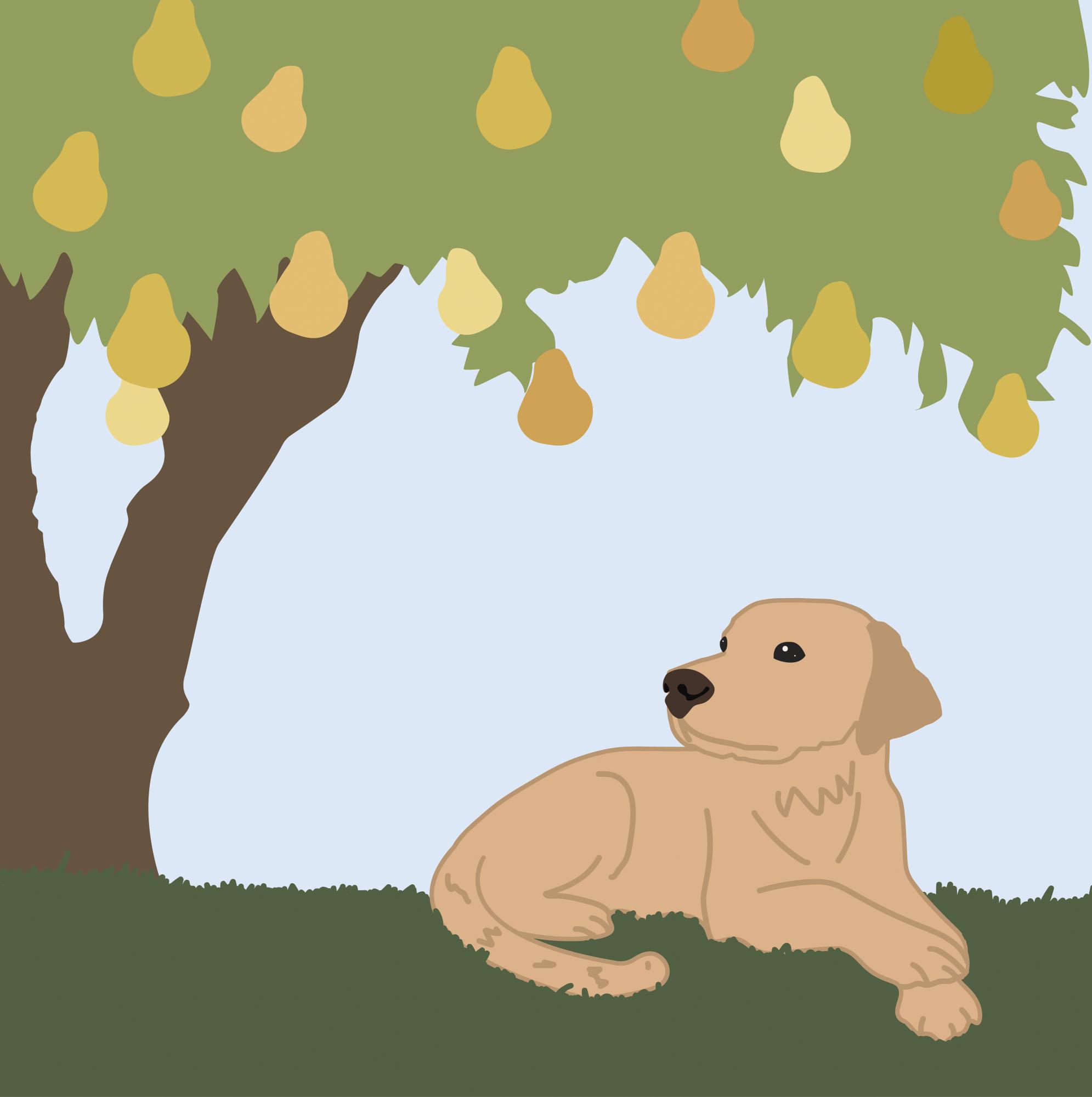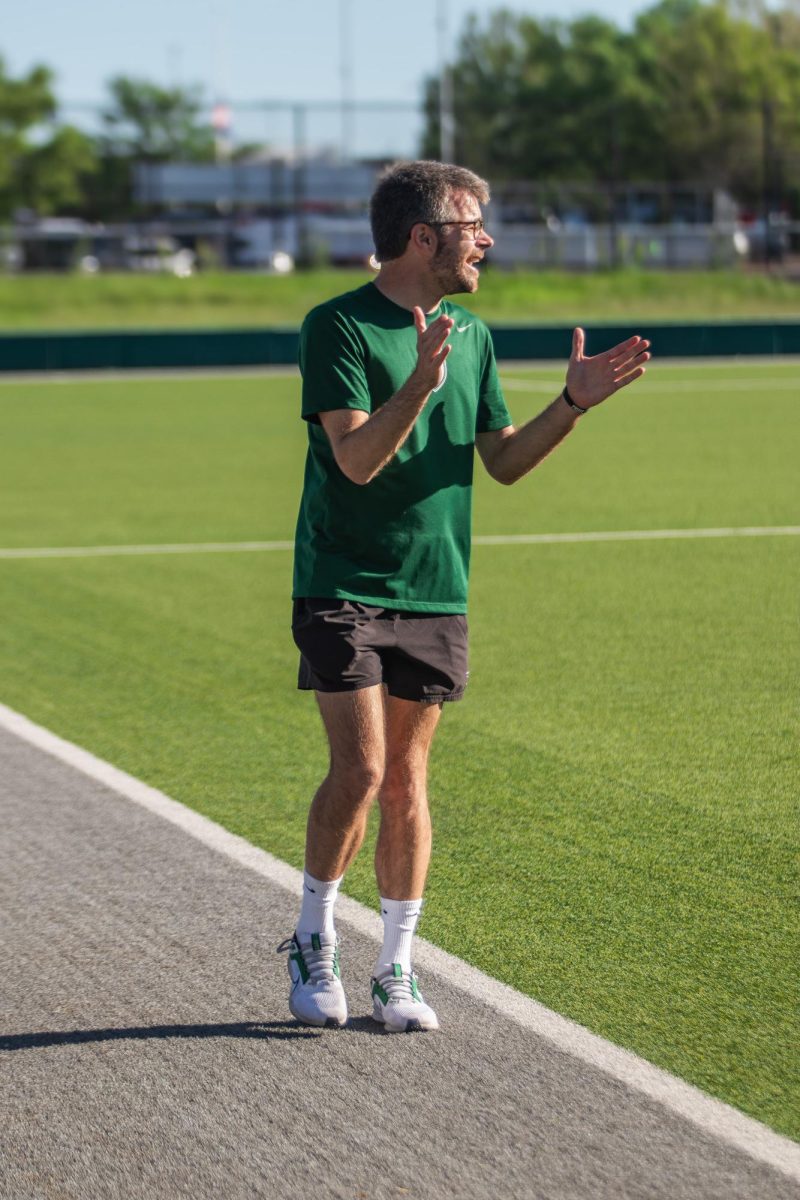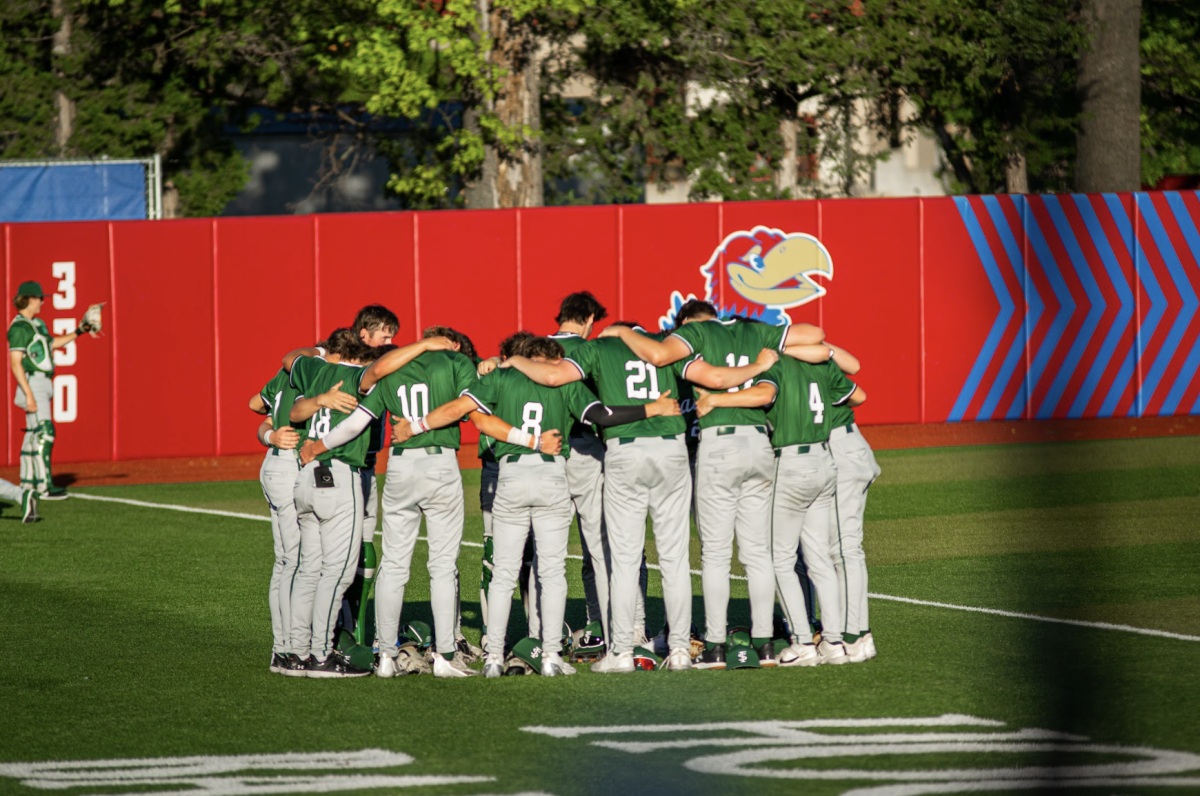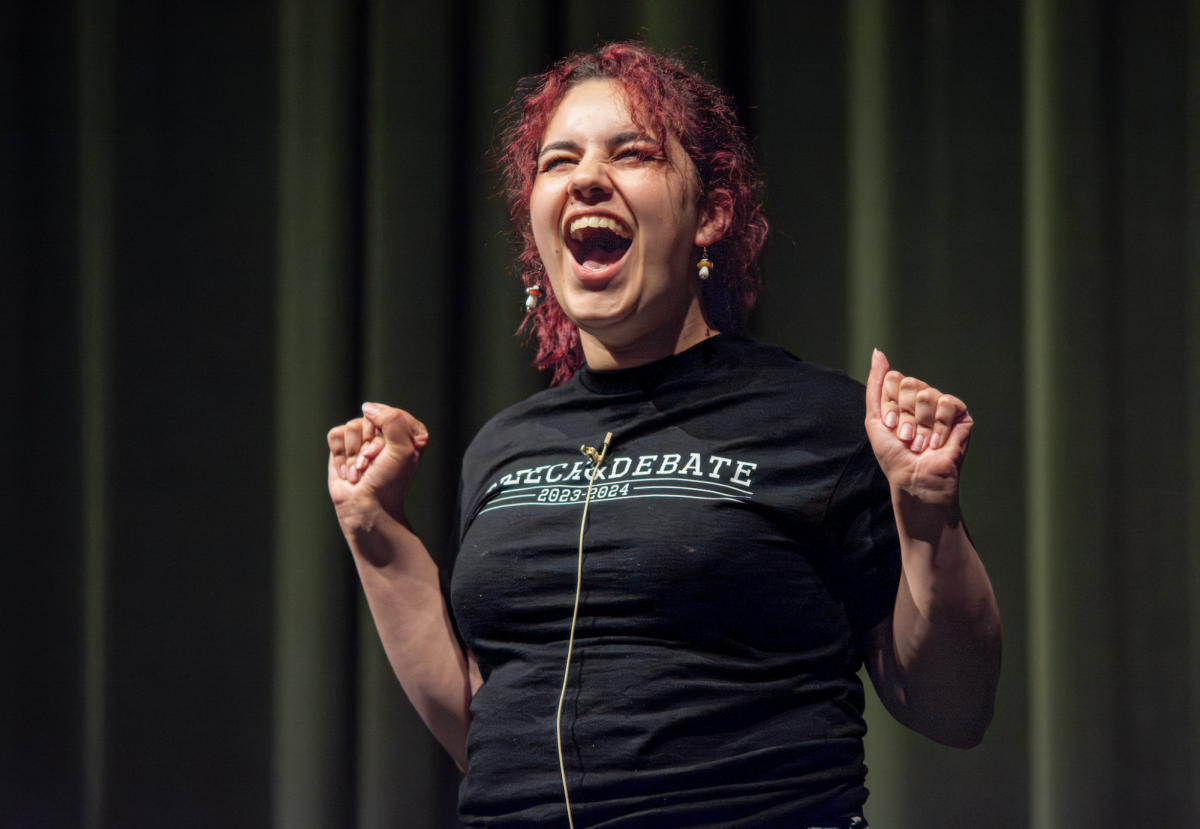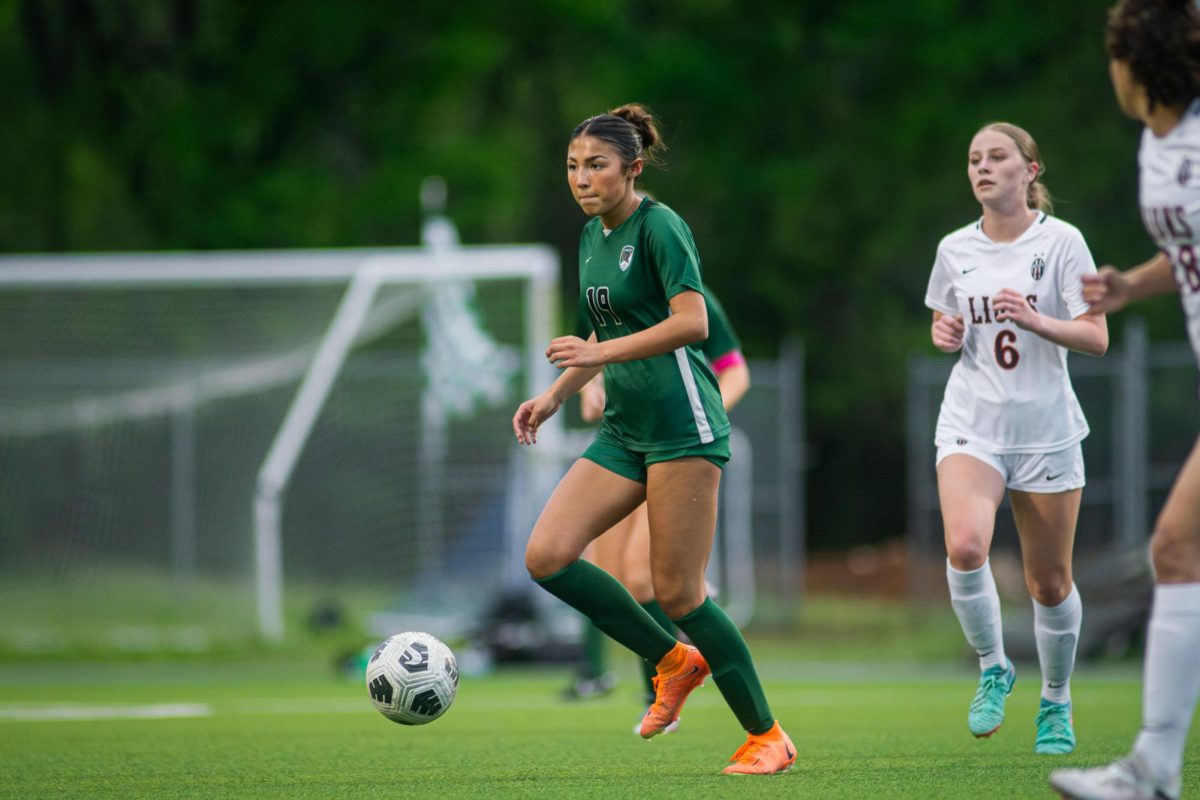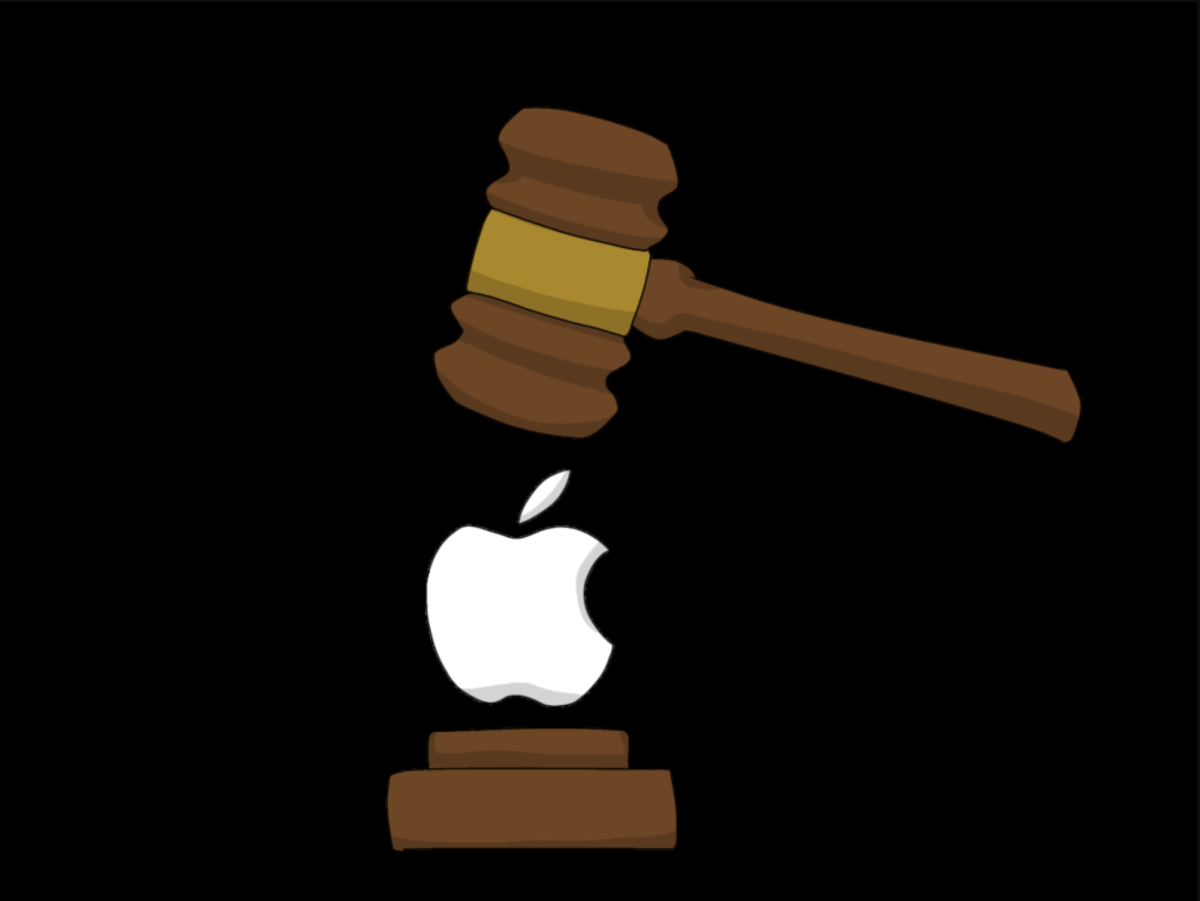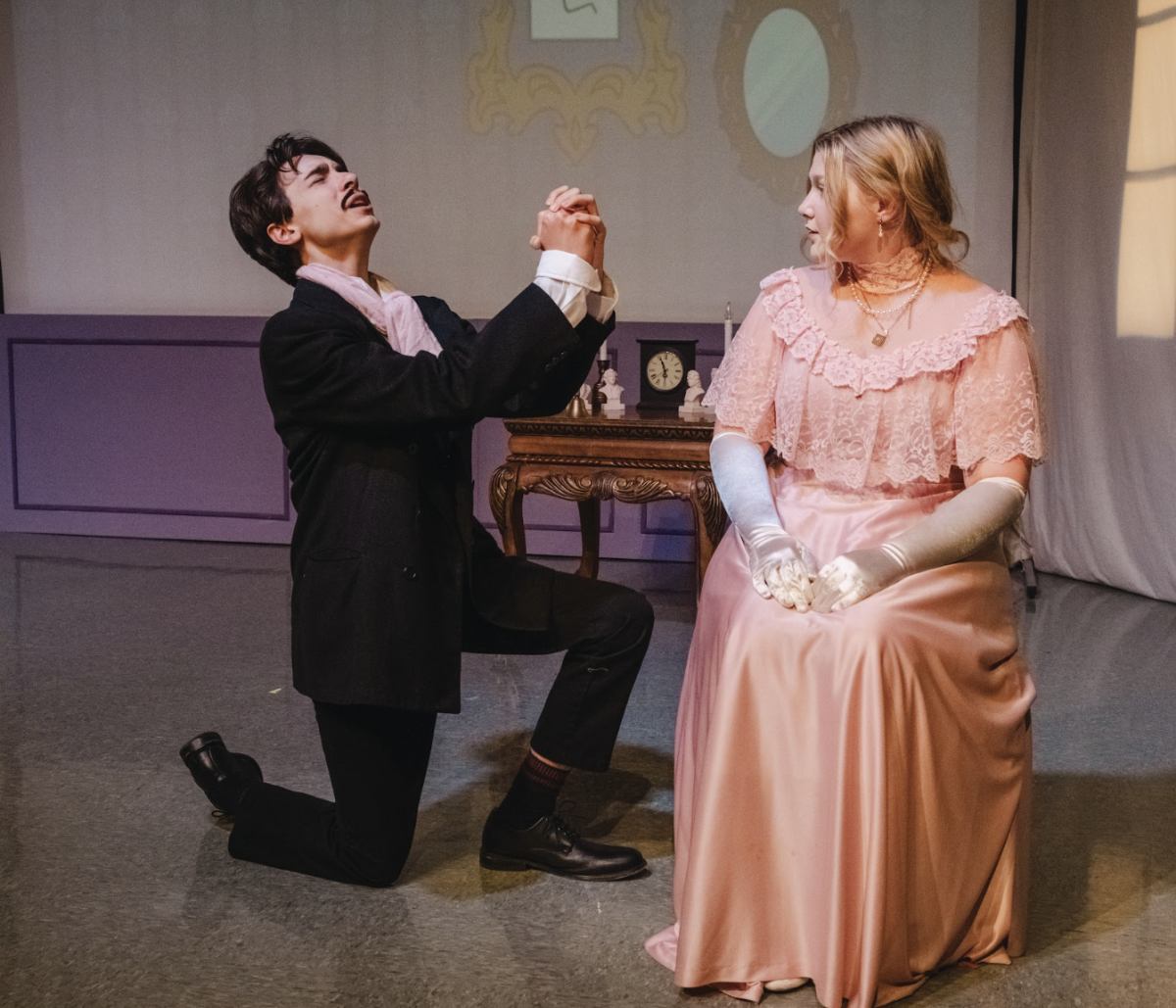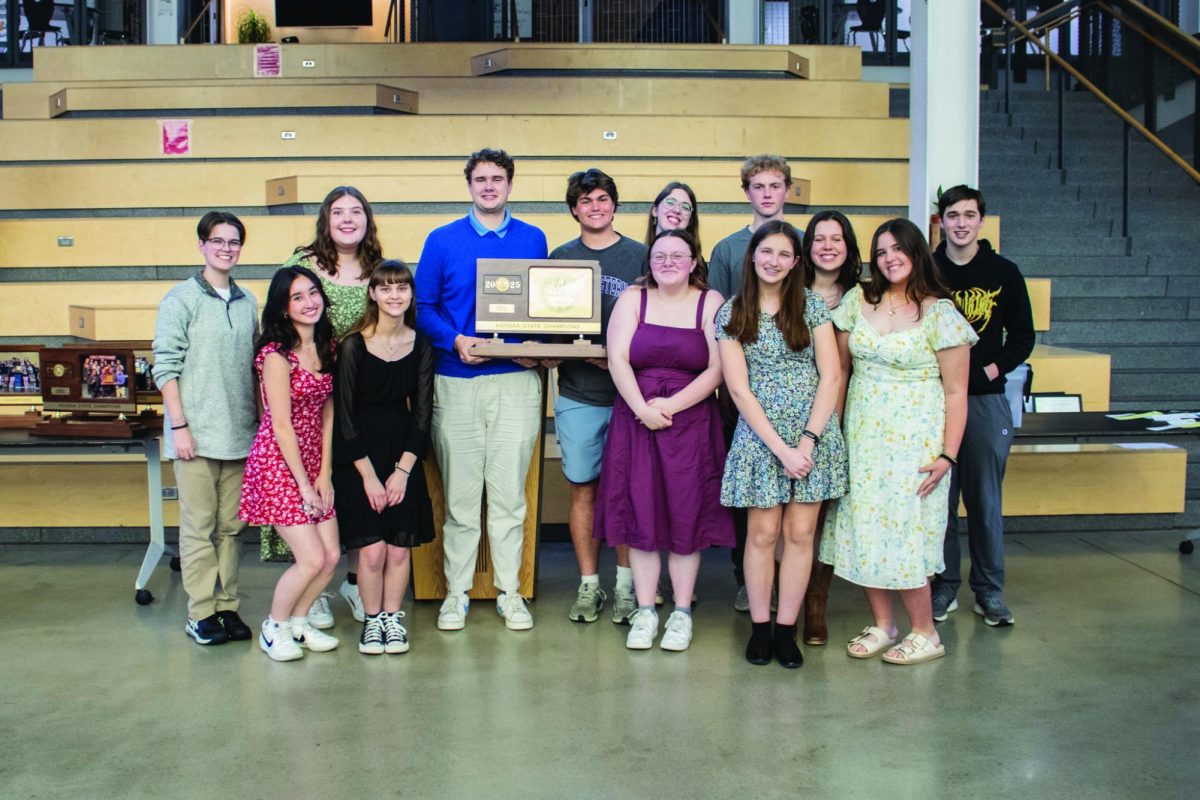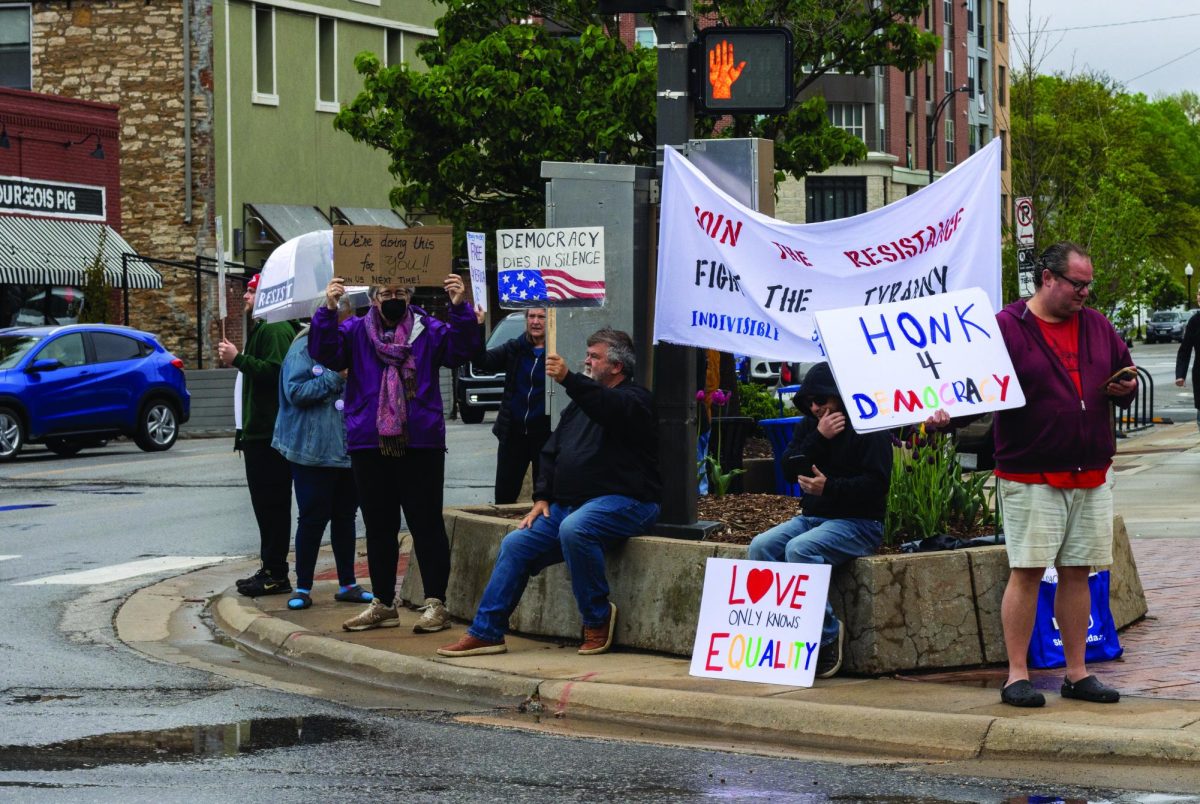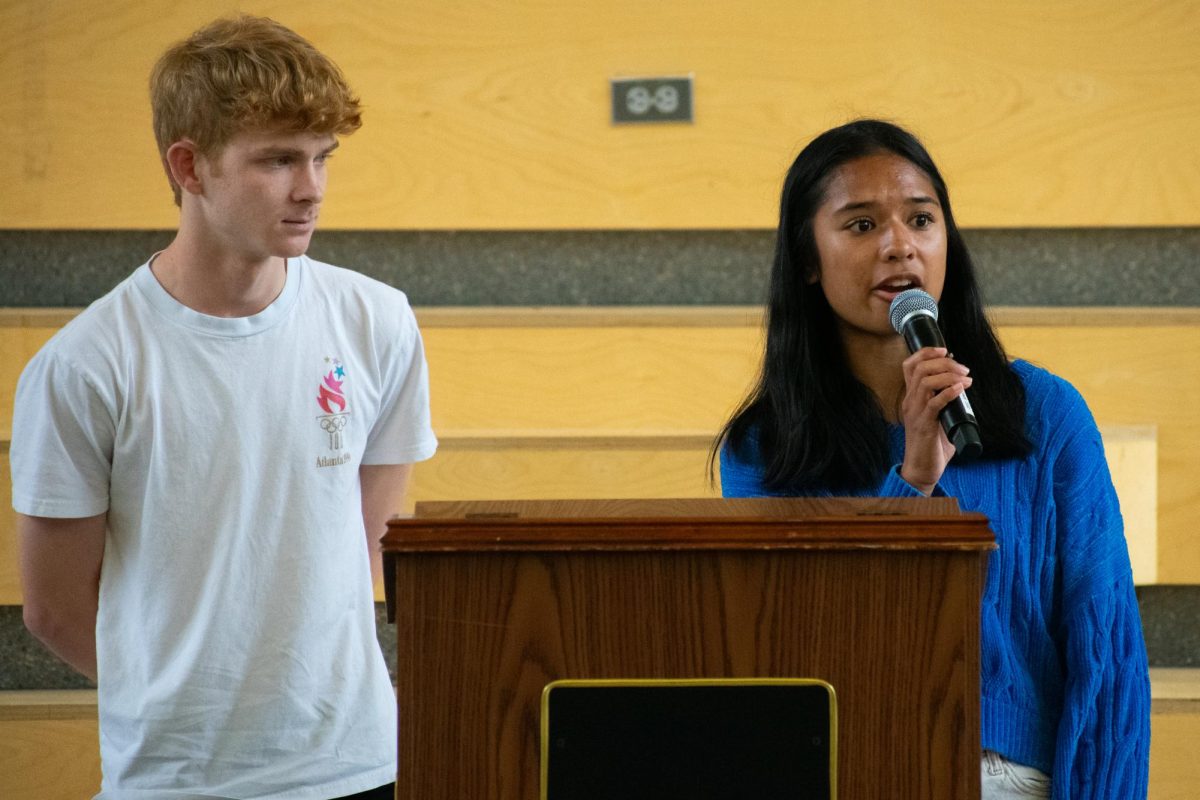What do you notice when you arrive at or leave campus? If you are a student, perhaps you are moving fast because you are tardy for the first hour, or perhaps you cannot wait to reach the confines of a car to escape the weather. However, on occasion during a lunch period or on a slower paced morning, certain features of the grounds might catch your attention. A notable one due to its proximity to the northern entrance to the school was a well-established and mature fruit-bearing pear tree.
In early October, this tree was removed due to concerns and instances surrounding a bee presence relative to the fruit tree. Consultation occurred between administration and grounds management, and removal was selected as the optimal solution to the situation at hand, despite the fact that maintenance work on the tree had not occurred in recent years.
“Every late summer, we have the horrible problem of the fruit getting ripe and falling and there are just swarms of bees out there, all over the seating area where people like to sit. This year, it seemed like they were even worse,” Principal Amy McAnarney said.
Although certain concerns surrounding bee safety are quite valid, a larger issue comes down to mismanagement of habitat and misunderstanding of pollinator species’. Environmental Science teacher Julie Schwarting associates the latter with the fact that the majority of bees present at Free State are solitary pollinators that are not inclined to swarm. They are focused on gathering pollen and in turn pollinating our natural environment, unconcerned with people.
“In that way, they should not be disturbing, it’s not in their nature to go attack somebody,” Schwarting said.
Solitary bee species’ are varying bee types that are not a part of a larger colony. Additionally, the U.S. Geological Survey cites that the U.S. is home to over 4,000 bee species’, and over 25% of those are IUCN designated endangered species, with 95% of the latter consisting of solitary bee species’ according the Xerces Society for Invertebrate Conservation. This creates an even greater concern when mismanagement occurs on a local level that consists largely of solitary bees.
“The nice thing about Free State is that we have a lot of prairie area, all the trees along the soccer field and the football stadium. There are a lot of other areas for nature to thrive,” Principal McAnarney said.
While natural areas are beneficial at large, bees make up 80% of pollinators according to the U.S. Geological Survey, and destruction to their environment can cause detriment overall. Therefore, it is important to focus on management practices and real solutions, as Schwarting notes that fruit trees are rather trashy when ill-kept, which contributes to the larger problem.
Junior Kaitlynn Sedich believes that the issue involves misunderstanding of bees, as well as a lack of student responsibility when it comes to promoting unnatural bee habitat in the north seating area by a heavy presence of litter.
“The main thing in my opinion is that bees aren’t really an issue, they won’t mess with you if you don’t mess with them, so teach students not to litter, and not to antagonize bees,” Sedich said.
Natural features play a significant role in school communities, providing resources and opportunities for students and pollinators alike. Quick solutions such as removal can become a detriment to the environment, especially as better practices and approaches to pollinators are available.
Going forward, the school and community should place emphasis on preventative measures to reduce concern, and assume further responsibility in upkeep of the tree and surrounding seating area.



